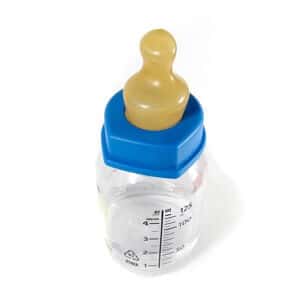
A few years ago, there was a media spotlight on bisphenol A, or BPA for short. This compound was a common component of hard, clear plastic containers such as water bottles, baby bottles and other food containers. It also show up in thermal cash register receipts.
Risks of BPA:
BPA has activity in the body that mimics estrogen, and when it was found to be an endocrine disruptor even (or especially) at low levels, consumers were upset. Animal research suggested that BPA exposure would increase the risk of breast cancer. Studies in human beings found that adults with higher urinary levels of BPA were more susceptible to coronary artery disease (Circulation, March 27, 2012).
In children, higher BPA levels in urine were more common among overweight youngsters (JAMA, Sept. 29, 2012). A systematic review of 33 studies showed that individuals (mostly adults in these studies) with higher levels of urinary BPA were more likely to be overweight or obese or to have type 2 diabetes, which is associated with excess weight (Environmental Health, May 31, 2015).
None of these studies demonstrated cause and effect, but it is little wonder that people started searching for BPA-free products.
Are BPA-Free Bottles Safer?
When scientists demonstrated that BPA had hormone disrupting activity, a lot of consumers started looking for alternatives. Soon BPA-free plastic bottles proliferated and consumers assumed that they were far safer. But the chemical replacement for BPA is frequently bisphenol S, or BPS.
Research on BPS Is Not Encouraging:
Now a study published in the journal Endocrinology suggests that both BPS and BPA make fat cells proliferate. In this test-tube research, cells were exposed to varying concentrations of BPS. Even very low levels of the chemical triggered lipid accumulation.
There is no direct evidence that BPA, BPS or other bisphenol A substitutes will make humans fatter, but the research is certainly enough to give one pause. Our usual recommendations are not to wash hard clear plastic containers in the dishwasher, as this may accelerate leaching of their components into food. In addition, we suggest not using plastic containers in the microwave oven. Don’t rely on canned food products, since BPA is frequently used in the lining of cans. Where possible, using metal (stainless steel) bottles or glass containers would be preferable.
And if the cashier asks you if you want your receipt, decline. Cashiers should be allowed to wear gloves while operating the register to limit their excess exposure to BPA from receipts.

